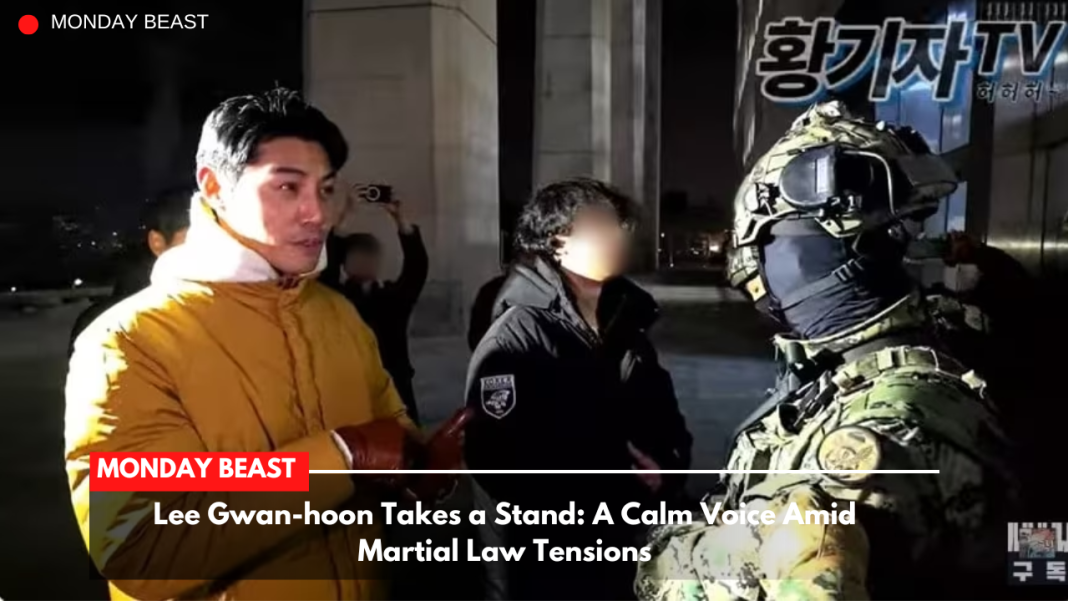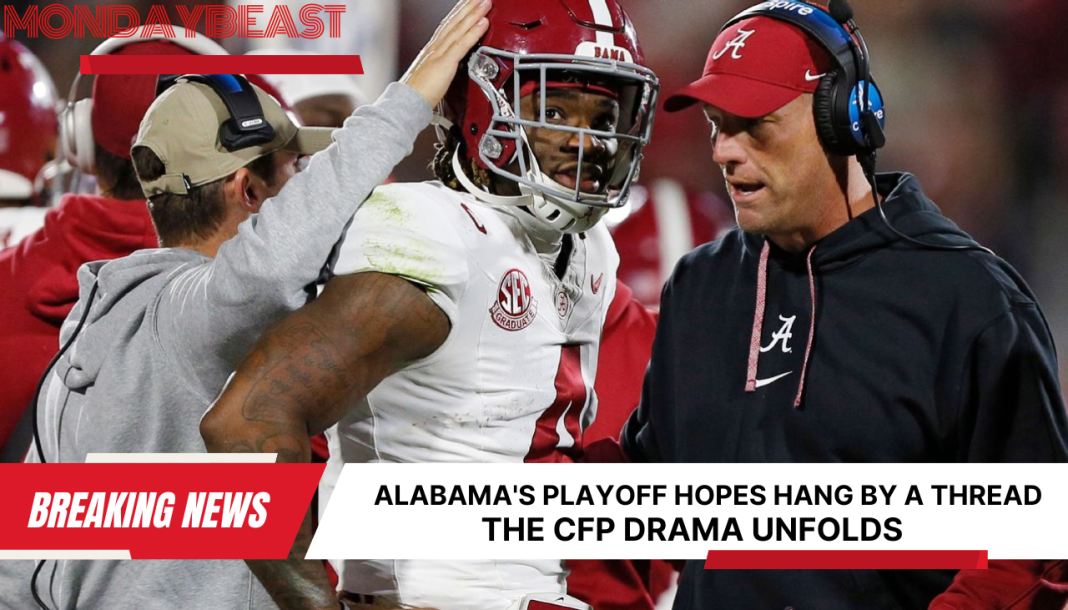Lee Gwan-hoon’s unexpected appearance before martial law forces raised eyebrows. Known as a respected actor and former sergeant, he took a bold step on the evening of the 3rd. His direct appeal captured attention across South Korea.
Also read
- BTS Jin’s Amazing Journey After Military Discharge: From Olympics to Jimmy Fallon
- Happy Birthday Jin: Celebrating BTS’ Star with His Solo Album Happy
- Celebrate BTS Jin’s Birthday: Creative Ways to Wish Him Well!
As the situation unfolded outside the National Assembly, it became evident that emotions were running high. President Yoon Seok-yeol declared martial law in a dramatic statement. He aimed to protect South Korea from perceived threats.
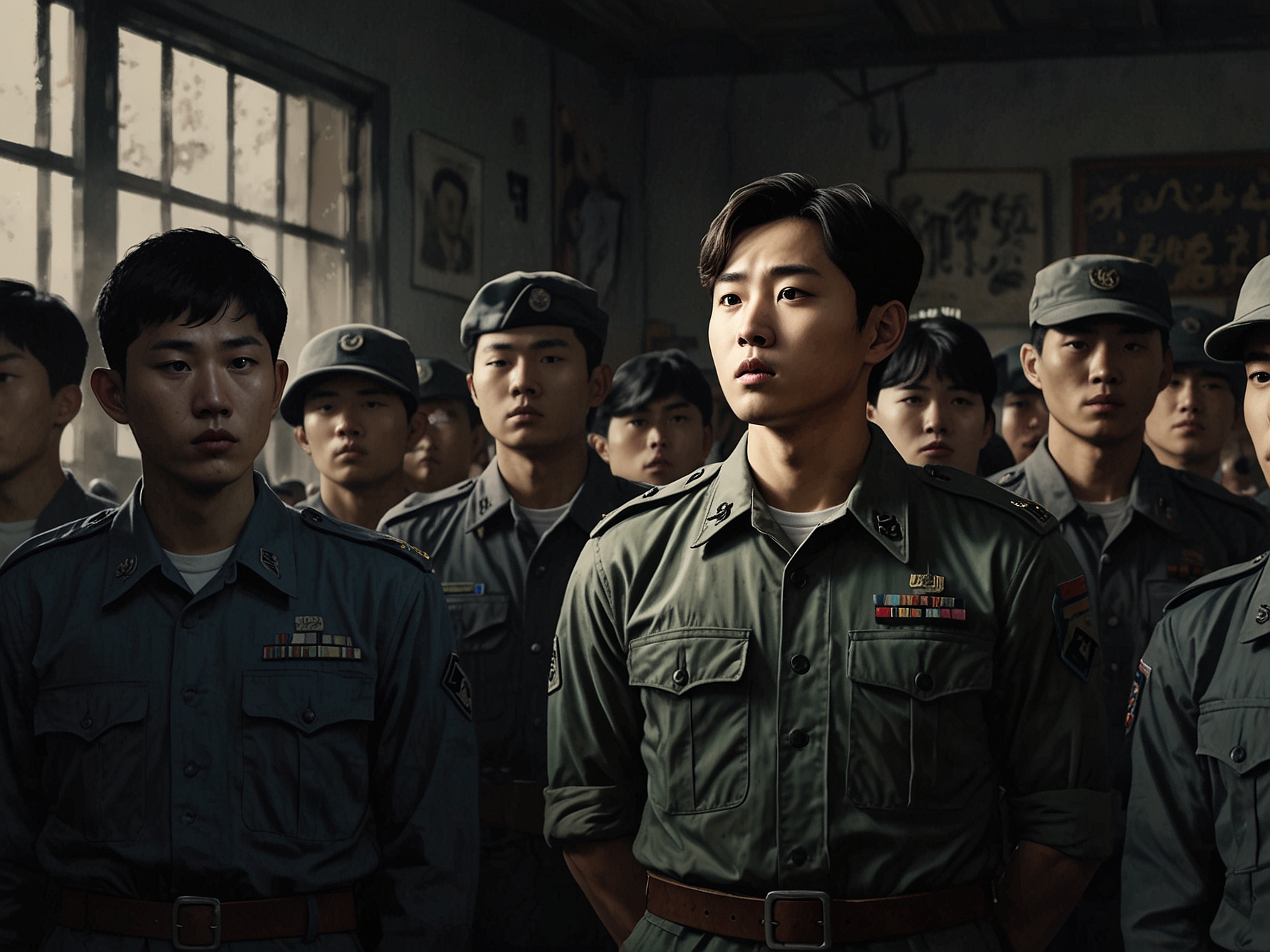
But how did citizens respond to this sudden tactic? Many feared the implications of martial law. What does it mean for democracy, rights, and freedoms?
Dubbed a precautionary move against North Korea, was it necessary or an overreaction? In the thick of this turmoil, Lee Gwan-hoon, standing among the martial law forces, introduced himself. “I’m a senior from 707,” he said, resonating with those who recognize the significance of his words.
His tone was a mixture of authority and concern. Lee expressed empathy for the soldiers. “You came because you were ordered to, but you guys need to calm down,” he advised sincerely.
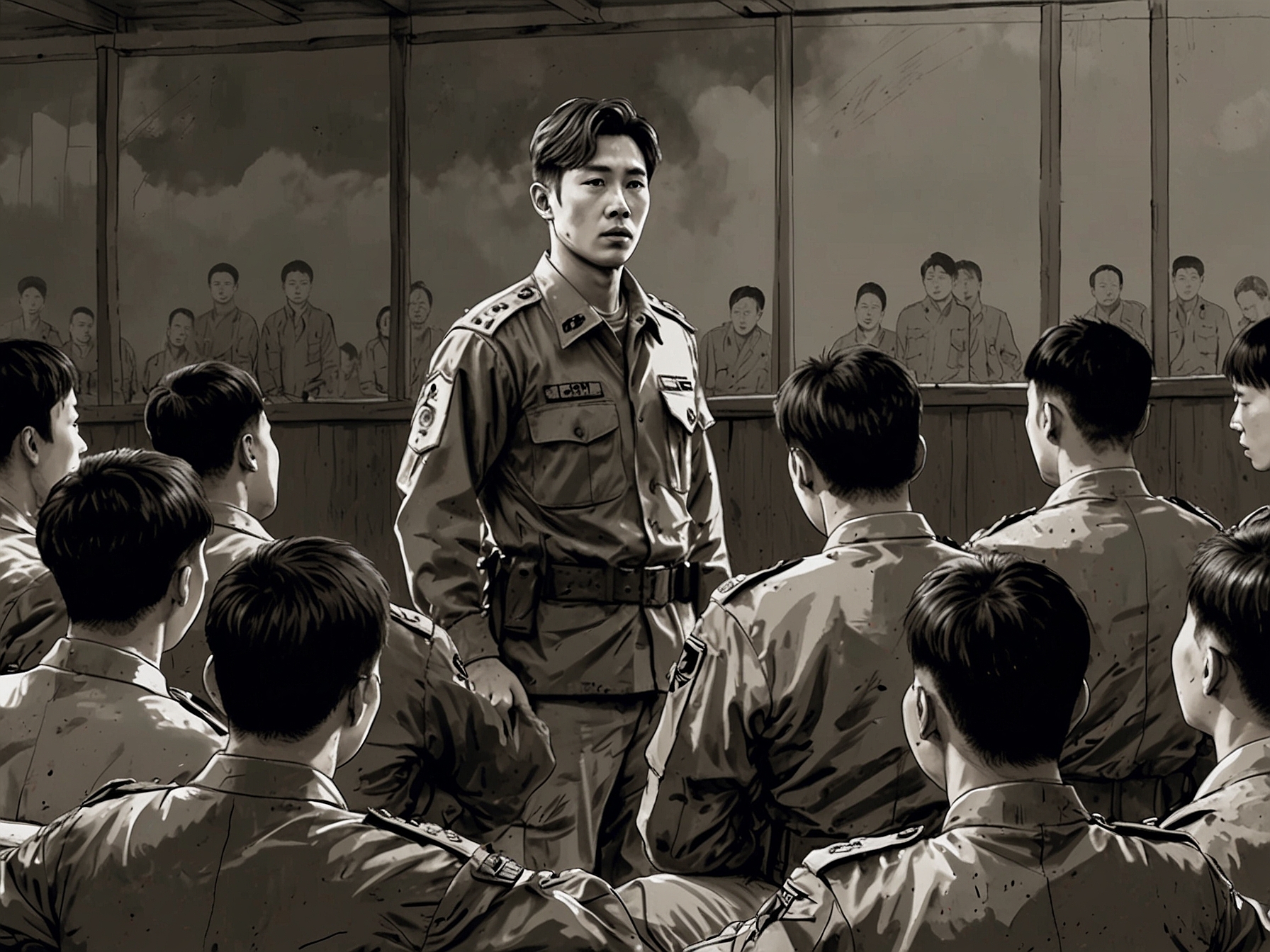
His words acted as a bridge, easing tension in a precarious moment. It’s a powerful image to think of a man of his stature addressing young soldiers caught in an unusual situation. But who was Lee Gwan-hoon, really?
The former sergeant turned actor rose to fame following his debut in the historical drama ‘Daejoyeong.’ Over the years, he has appeared in several popular series. Yet, this moment eclipses his acting resume.
It marks him as a voice of reason during civil unrest. Even though he has distanced himself from military life for 20 years, a bond exists. When reflecting on this connection, one can’t help but wonder—how deeply does history influence actions in the present?
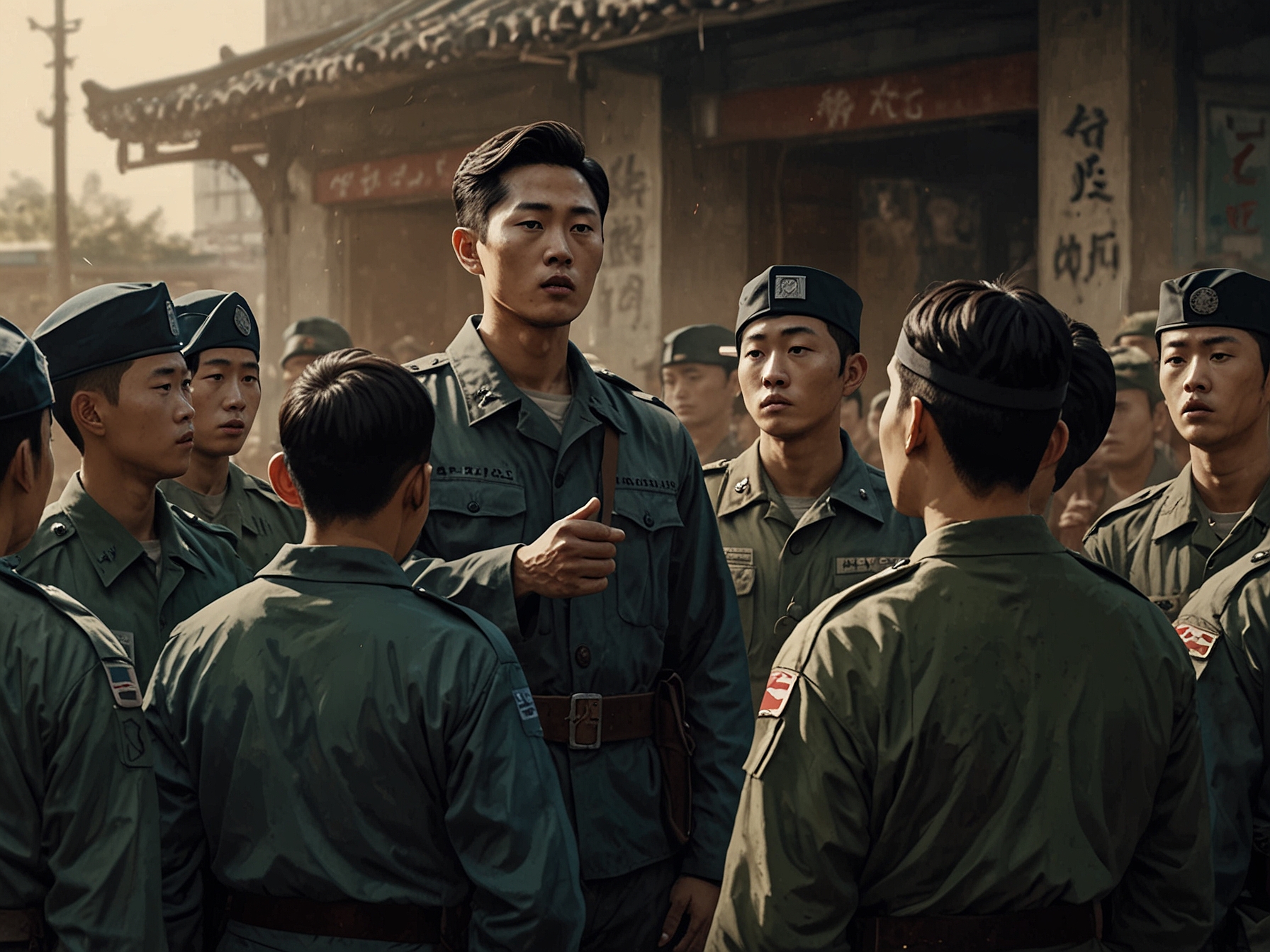
Lee expressed complex emotions; from pride in his military background to worry over the choices ahead for the soldiers. His concern continued. “You will watch it on YouTube too, don’t block me too much,” he stated.
A curious remark, really, invoking the power of modern media in a tumultuous age. One can almost feel the tension release when Lee encourages the troops to think for themselves. From a broader perspective, martial law introduces pivotal questions about governance and civil liberties.
As political leaders invoke authority in emergencies, how do we ensure that democracy isn’t compromised? Lee’s position ignites conversations on trust, duty, and personal agency. With martial law enacted and lifted within mere hours, the incident serves as a reminder of the fragility of governance.
The National Assembly swiftly passed a resolution demanding an end to martial law. It highlighted concerns that some felt were ignored in the face of fear. In closing, Lee Gwan-hoon’s actions illustrate a courageous stand in a moment of crisis.
While politicians may make decisions from the podium, actors like Lee offer perspectives shaped from experience. They humanize the military’s image and encourage dialogue. Can moments like these redefine relationships between civilians and the armed forces? Only time will tell.

